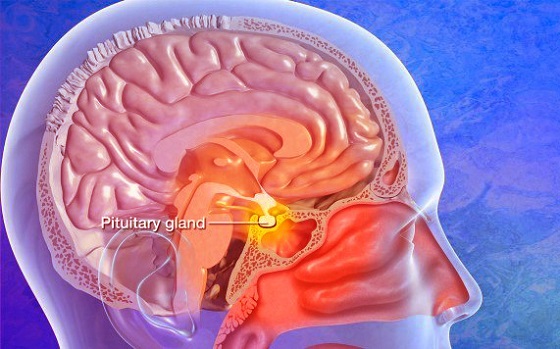Nikhil Prasad Fact checked by:Thailand Medical News Team Nov 06, 2025 2 months, 4 weeks, 1 day, 19 hours, 39 minutes ago
Medical News: COVID-19’s Hidden Impact on the Pituitary Gland
A new scientific study has revealed that COVID-19 may directly increase the risk of developing hypopituitarism—a serious hormonal disorder caused by impaired function of the pituitary gland. The research, conducted by scientists from Chengdu Medical College and The First Affiliated Hospital of Chengdu Medical College, used advanced genetic analysis methods to establish a causal connection between the viral infection and long-term endocrine dysfunction.
 Scientists Warn That COVID-19 Increases Risk of Hypopituitarism
Scientists Warn That COVID-19 Increases Risk of Hypopituitarism
The pituitary gland, a pea-sized organ located at the base of the brain, regulates vital hormones that control metabolism, stress response, and reproductive health. Damage to this gland can lead to multiple health complications including fatigue, depression, infertility, and metabolic disorders. This
Medical News report highlights growing evidence that COVID-19’s impact extends far beyond the lungs, affecting key hormonal and neurological systems.
Groundbreaking Genetic Approach
To explore whether SARS-CoV-2 infection causes hypopituitarism rather than merely being associated with it, the researchers employed a method known as Mendelian randomization (MR). This approach uses genetic variants as natural experiments to determine causality between diseases. Data were drawn from large-scale European databases—the European Bioinformatics Institute (EBI) for COVID-19 cases and the FinnGen database for hypopituitarism.
The study analyzed genetic information from over 1.5 million individuals, identifying five specific genetic variants linked to COVID-19 that also correlated with an elevated risk of hypopituitarism. The findings showed that those genetically predisposed to severe COVID-19 had a 28% higher chance of developing hypopituitarism compared to those who were not. The results remained consistent across several analytical methods, confirming a stable and significant causal relationship.
Implications for Long COVID and Endocrine Health
The research provides new insights into how COVID-19 may trigger or worsen pituitary dysfunction. Scientists suggest that SARS-CoV-2 might affect the hypothalamic-pituitary-adrenal (HPA) axis, the system responsible for managing the body’s stress and hormonal responses. The virus can enter the brain through the bloodstream, bind to ACE2 receptors, and damage pituitary cells directly.
Inflammation, cytokine storms, and autoimmune reactions could also play a role. Some patients who recovered from COVID-19 have developed antibodies that attack their own pituitary or hypothalamic tissues. Such autoimmune responses can result in long-term endocrine imbalances, explaining why many long COVID sufferers report persistent fatigue, hormonal instability, and autonomic dysfunction.
Why These Findings Matter
This study is among the first to scientifically confirm that COVID-19 can cause hypopituitarism through genetic evidence rather than coi
ncidence. It suggests that doctors should closely monitor patients who have had COVID-19, especially those experiencing hormonal symptoms like chronic tiredness, reduced libido, or unexplained weight changes. Early diagnosis and hormone replacement therapy can help prevent severe complications.
Researchers emphasize that while the study was conducted on European populations, similar effects may occur globally. More diverse studies and clinical trials are needed to verify the findings and understand the mechanisms involved.
A New Perspective on Long-Term COVID-19 Effects
The study reinforces the growing recognition that COVID-19 is not merely a respiratory illness but a multi-system disease capable of affecting the brain, endocrine glands, and immune system for months or even years after infection. The discovery that the virus can disrupt hormonal balance through pituitary damage offers a crucial clue for managing long COVID symptoms and improving patient outcomes.
Overall, this research underscores the importance of long-term monitoring of COVID-19 survivors and calls for greater awareness among clinicians about the potential for hidden hormonal complications. Ignoring these risks could mean missing early signs of a condition that can profoundly affect quality of life, metabolism, and mental health.
The study findings were published in the peer reviewed journal: IBRO Neuroscience Reports
https://www.sciencedirect.com/science/article/pii/S2667242125001356
For the latest COVID-19 news, keep on logging to Thailand
Medical News
Read Also:
https://www.thailandmedical.news/articles/coronavirus
https://www.thailandmedical.news/articles/long-covid
